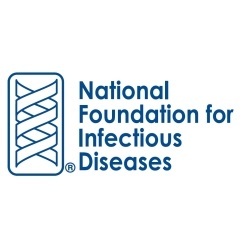Statement on June 2025 Advisory Committee on Immunization Practices Meeting
PR Newswire
BETHESDA, Md., June 26, 2025
Flawed Process Leads to Confusion and Distrust
BETHESDA, Md., June 26, 2025 /PRNewswire/ -- Immunization policy decisions must be guided by science. The National Foundation for Infectious Diseases (NFID) is gravely concerned with the flawed process that occurred during the recent Advisory Committee on Immunization Practices (ACIP) meeting on June 25-26, 2025.
Deviation from the long-standing evidence-based process that has historically guided ACIP deliberations undermines transparency and trust, risks legitimizing misinformation, and is harmful to public health. A process that includes input from Centers for Disease Control and Prevention (CDC) experts, working groups, and trusted scientific and medical organizations, has been critical to ensuring rigorous, transparent, evidence-based recommendations that the public and healthcare professionals can trust.
Voting on critical policy recommendations without due process that includes a thorough, balanced, and vetted review of available data by qualified experts invalidates the results and leads to confusion and distrust of recommendations. "Vaccines are among the greatest public health accomplishments," said NFID Medical Director Robert H. Hopkins, Jr., MD. "The process we witnessed instills doubt rather than builds confidence and calls into question the legitimacy of the votes taken, including the vote on thimerosal in influenza (flu) vaccines."
There is no new scientific evidence warranting a change in recommendations for thimerosal-containing flu vaccines. Thimerosal has been used for decades in the US as a preservative to prevent the growth of dangerous germs. Based on multiple peer-reviewed scientific studies in the US and other countries, the US Food and Drug Administration (FDA) concluded that thimerosal-containing vaccines are safe and have a long history of preventing contamination.
The virtually non-existent risks of thimerosal in flu vaccines pale in comparison to the real risks posed by flu each year in the US. There were 250 US pediatric flu deaths during the 2024-2025 season, the deadliest non-pandemic flu season on record for US children. Flu vaccination saves lives and helps prevent serious flu-related complications. CDC preliminary estimates show that during the 2024-2025 season, flu vaccination prevented 12.5 million flu-related illnesses, 5.7 million medical visits, and 240,000 hospitalizations.
Any changes in immunization recommendations, including recommendations on COVID-19 vaccines, maternal and pediatric RSV immunization, and the use of thimerosal in flu vaccines, must be based on science and evaluated using a consistent and rigorous process. Immunization is an essential tool in protecting against serious outcomes of preventable diseases.
NFID strongly supports the use of evidence-based guidance reviewed by qualified experts, within CDC and externally, to inform public health policy, and we will work to preserve equitable access, choice, and public and private insurance coverage to life-saving immunizations to protect the health of people across the US.
About the National Foundation for Infectious Diseases
Founded in 1973, the National Foundation for Infectious Diseases (NFID) is a non-profit 501(c)(3) organization dedicated to educating and engaging the public, communities, and healthcare professionals about infectious diseases across the lifespan. NFID has a 4-star rating from Charity Navigator and has earned a Platinum transparency seal from Candid/GuideStar. For more information, and to access trusted science-based resources on immunization for both healthcare professionals and the public, visit www.nfid.org.
Contact: Diana Olson, communications@nfid.org
![]() View original content to download multimedia:https://www.prnewswire.com/news-releases/statement-on-june-2025-advisory-committee-on-immunization-practices-meeting-302492844.html
View original content to download multimedia:https://www.prnewswire.com/news-releases/statement-on-june-2025-advisory-committee-on-immunization-practices-meeting-302492844.html
SOURCE National Foundation for Infectious Diseases




